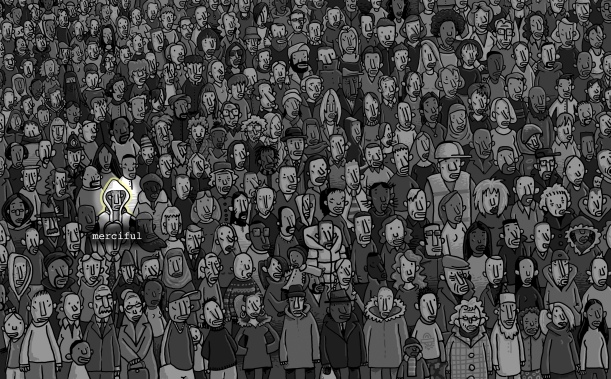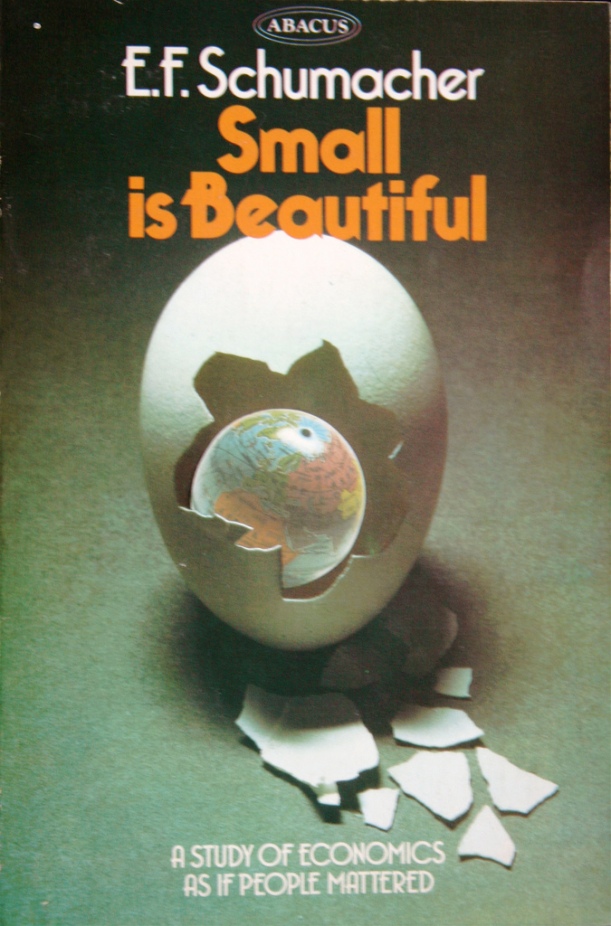You decide;
https://www.theguardian.com/news/2017/aug/18/neoliberalism-the-idea-that-changed-the-world


How do you deal with problems that seem too big?
Traditionally, we look for government intervention. But some problems seem bigger than one government even.
So we form international bodies; the EU, the UN, a thousand talking shops and gatherings of important people. Who seem to achieve so little.
The problems are so big, and we so small. And there is the mortgage to pay. And Game of Thrones is on the TV. Perhaps all I can do is look after me and what is mine. And try to be kind to others when I can. Digitally.
I was reading some of the words of Timothy Morton recently. He is perhaps the closest thing we have to rock-star philosopher, an academic professor who collaborates with Bjork. One of the awkward squad.
Morton suggested that some concepts (which he called ‘Hyperobjects’ might represent something very real, but they are no longer useful terms- they are too big to get into our heads; black holes, the internet, global warming. He even suggests scrapping the word ‘nature’ as it is so big that it is meaningless.
Meanwhile, says Morton, we have now firmly entered the Anthopocene age, we have created our own epoch, we have altered the whole planet. There is lots to fear- extreme weather, resource shortages, mass extinctions of species. We KNOW all this, but we are powerless to act on this information. Our relationship to the world has changed- now just living involves moral choices to continue destruction because although individual acts are insignificant, we are one of billions all careering towards the same precipice in what Morton calls a ‘traumatic loss of co-ordinates’. We caused it, but we can not control it.
Morton goes on to make some comments that might seem on the face of things horribly fatalistic.
From this mess, Morton somehow manages to conjure hope. He says that there is solidarity in ignorance which must eventually lead to change. We must come to the idea that we can’t transcend our reliance on other humans and the whole world. We can only live with these limitations. He says this should not be a matter for gloom, but rather for liberation.
Do you feel liberated?
What might set us free?

The Beatitudes, Jesus’s hyperballad.
How are these words relevant to now? How do they engage with a world caught up in Morton’s ‘Traumatic lack of co-ordinates’?
I think the first things the words do is to remind us of the scale and reach of humanity. We are many, but we are one. We are community, but we are alone.
Next they remind us that life is full of challenge. Perfection and comfort were never guaranteed. We have no right to an easy long life, particularly at cost to others.
Then they remindsus that the small things matter more, particularly small things done in love. One exchange at a time.
They remind us that people matter most, one at a time.

In his brilliant, prophetic book, Small is Beautiful (published in 1973), E F Schumacher gave a prominent place to the words of the Beatitudes. Given the visionary scope of this book, taking in philosophy, theology, economics and sustainable development, this inclusion is hardly surprising really. I thought it might be helpful to post an excerpt here;
I think we can already see the conflict of attitudes which will decide our
future. On the one side, I see the people who think they can cope with our
threefold crisis by the methods current, only more so; I call them the people
of the forward stampede. On the other side, there are people in search of a
new life-style, who seek to return to certain basic truths about man and his
world; I call them home-comers.…
Let us admit that the people of the forward
stampede, like the devil, have all the best tunes or at least the most popular
and familiar tunes. You cannot stand still, they say; standing still means
going down; you must go forward; there is nothing wrong with modern
technology except that it is as yet incomplete: let us complete it. Dr Sicco
Mansholt, one of the most prominent chiefs of the European Economic
Community, may be quoted as a typical representative of this group. ‘More,
further, quicker, richer,’ he says, ‘are the watchwords of present-day society.’
And he thinks we must help people to adapt ‘for there is no alternative’. This
is the authentic voice of the forward stampede, which talks in much the same
tone as Dostoyevsky’s Grand Inquisitor: ‘Why have you come to hinder us?’
They point to the population explosion and to the possibilities of world
hunger. Surely, we must take our flight forward and not be fainthearted. If
people start protesting and revolting, we shall have to have more police and
have them better equipped. If there is trouble with the environment, we shall
need more stringent laws against pollution, and faster economic growth to
pay for anti-pollution measures. If there are problems about natural
resources, we shall turn to synthetics; if there are problems about fossil
fuels, we shall move from slow reactors to fast breeders and from fission to
fusion. There are no insoluble problems. The slogans of the people of the
forward stampede burst into the newspaper headlines every day with the
message, ‘a breakthrough a day keeps the crisis at bay’.…
And what about the other side? This is made up of people who are deeply
convinced that technological development has taken a wrong turn and needs
to be redirected. The term ‘home-comer’ has, of course, a religious
connotation. For it takes a good deal of courage to say ‘no’ to the fashions
and fascinations of the age and to question the presuppositions of a
civilisation which appears destined to conquer the whole world; the requisite
strength can be derived only from deep convictions. If it were derived from
nothing more than fear of the future, it would be likely to disappear at the
decisive moment.…
The genuine ‘homecomer’ does not have the best tunes, but
he has the most exalted text, nothing less than the Gospels. For him, there
could not be a more concise statement of his situation, of our situation, than
the parable of the prodigal son. Strange to say, the Sermon on the Mount
gives pretty precise instructions on how to construct an outlook that could
lead to an Economics of Survival.…
– How blessed are those who know that they are poor: the Kingdom of
Heaven is theirs.…
– How blessed are the sorrowful; they shall find consolation.…
– How blessed are those of a gentle spirit; they shall have the earth for their
possession.…
– How blessed are those who hunger and thirst to see right prevail; they
shall be satisfied;…
– How blessed are the peacemakers; God shall call them his sons.…
It may seem daring to connect these beatitudes with matters of technology
and economics. Bur may it not be that we are in trouble precisely because
we have failed for so long to make this connection? It is not difficult to
discern what these beatitudes may mean for us today:…
– We are poor, not demigods.…
– We have plenty to be sorrowful about, and are not emerging into a
golden age. – We need a gentle approach, a non-violent spirit, and small is
beautiful.…
– We must concern ourselves with justice and see right prevail.…
-And all this, only this, can enable us to become peace- makers.…
The home-comers base themselves upon a different picture of man from
that which motivates the people of the forward stampede. It would be very
superficial to say that the latter believe in ‘growth’ while the former do not.
In a sense, everybody believes in growth, and rightly so, because growth is
an essential feature of life. The whole point, however, is to give to the idea
of growth a qualitative determination; for there are always many things that
ought to be growing and many things that ought to be diminishing.…
Equally, it would be very superficial to say that the home- comers do not
believe in progress, which also can be said to be an essential feature of all
life. The whole point is to determine what constitutes progress. And the
home-comers believe that the direction which modern technology has taken
and is continuing to pursue – towards ever-greater size, ever-higher speeds,
and ever- increased violence, in defiance of all laws of natural harmony – is
the opposite of progress. Hence the call for taking stock and finding a new
orientation. The stocktaking indicates that we are destroying our very basis
of existence, and the reorientation is based on remembering what human life
is really about.…
In one way or another everybody will have to take sides in this great
conflict. To ‘leave it to the experts’ means to side with the people of the
forward stampede. It is widely accepted that politics is too important a
matter to be left to experts. Today, the main content of politics is
economics, and the main content of economics is technology. If politics
cannot be left to the experts, neither can economics and technology.